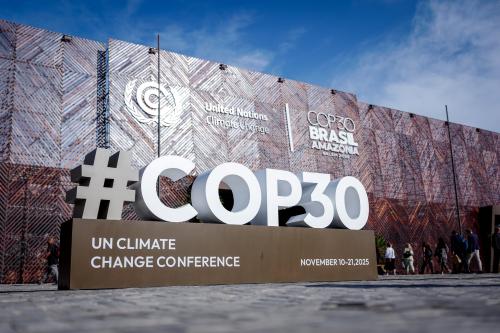As much as the nostalgic might hate to admit it, a new year is coming up. And for climate change negotiators, 2015 is a big one: it’s the make-it-or-break it year for a serious, last-ditch effort at an international agreement to slow runaway climate change.
A new year brings new, hopeful resolutions. Of course, just as ubiquitous are the pesky memories of past resolutions that one never quite accomplished.
Some resolutions fade, understandably. But failure is less forgivable when the repercussions include the increased exploration of fossil fuels at the expense of our warming world. To avoid the most destructive effects of climate change, we must keep two-thirds of existing fossil fuel reserves underground, instead of providing subsidies to dig them up.
One group not living up to its resolution: the G20 members —19 countries and the European Union that make up 85% of global GDP. At the 2009 G20 summit in Pittsburgh, the group agreed to “rationalize and phase out over the medium term inefficient fossil fuel subsidies that encourage wasteful consumption.” At the 2013 summit in St. Petersburg, they reaffirmed this resolution. Yet that same year, these countries funneled $88 billion into exploring new reserves of oil, gas, and coal.
Another resolution abandoned.
This year’s G20 summit will convene in Brisbane, Australia (November 15th– 16th) — a perfect opportunity to commiserate about the backsliding on the agreement and to develop a new approach that includes some means of holding each other accountable. So how can the G20 follow through on its laudable and necessary pledge?
1. Get help from the experts.
A new report by the Overseas Development Institute and Oil Change International criticizes the G20 for “marry[ing] bad economics with potentially disastrous consequences for climate change.” It points out that every dollar used to subsidize renewables generates twice as much investment as the dollar that subsidizes fossil fuels.
And the G20 can try harder to heed the doctor’s orders. This report outlines specific recommendations, including revamping tax codes to support low carbon development instead.
2. Set a timeline and stick to it.
National timelines for fossil fuel subsidy phase out would be different depending on the governmental structures and budgeting processes of individual countries. Also, countries can utilize the timeline of the incoming international climate treaty, by including a subsidy phase out as part of a mitigation plan to be measured and reported.
3. It’s easier with friends.
The G20 got it right that no one country should have to go it alone. Now it is time to strengthen its methodology for peer review of inefficient fossil fuel subsidies, and agree upon a transparent and consistent system for tracking and reporting.
That said, it can also be easier to cheat with friends. The new report tracks where investments from G20 state-owned energy companies are directed. As it turns out, G20 countries continue to fund each other’s fossil fuel exploration. Instead of cheating together on their own resolution, G20 members should leverage these relationships to advance investments in clean energy.
4. Hold each other accountable.
The G20 is not the only group that has committed to phase out fossil fuel subsidies. The issue has received support from advocacy groups, religious leaders, and business constituencies alike. The public will be able to better hold leaders accountable if the G20 declares its commitment and progress loud and proud.
Moreover, G20 members and advocacy organizations can make the facts very clear: fossil fuel subsidies do not support the world’s poor, and the public ends up paying for the externalities they cause in pollution and public health. This accountability to addressing concerns of the people can help the G20 stand up to the fossil fuel industry.
5. If at first you don’t succeed…
True, phasing out fossil fuel subsidies is no piece of cake. There is no G20 standard definition of “inefficient subsidies” or timeline for the phase out. It also hasn’t helped that countries report their own data. They can even opt out of this unenforced commitment altogether. Yet the pledge is there, as is the urgency of the issue. New Year’s resolutions take more than just commitments — they take work. This week’s G20 Leaders Summit is a wonderful place to commit to phasing out fossil fuel subsidies. Again.
The Brookings Institution is committed to quality, independence, and impact.
We are supported by a diverse array of funders. In line with our values and policies, each Brookings publication represents the sole views of its author(s).



Commentary
Ghosts of Resolutions Past: The G20 Agreement on Phasing Out Inefficient Fossil Fuel Subsidies
November 14, 2014